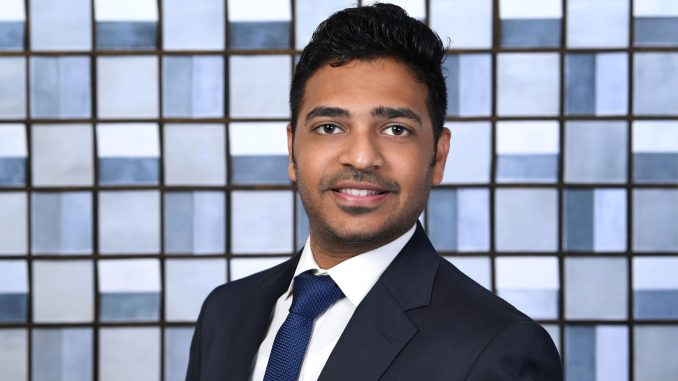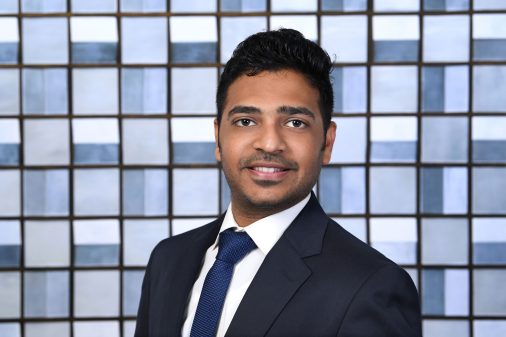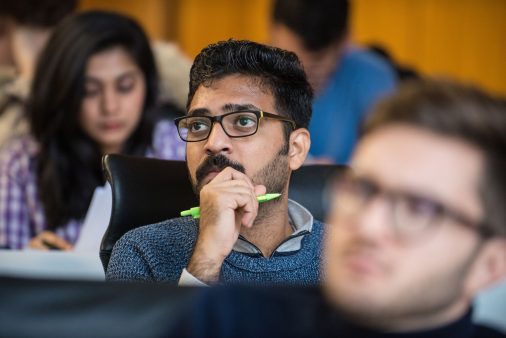

It is still hard to believe the fact that already a year and a half has passed since my last Portfolio Management Program (PMP) meeting with a wonderful bunch of people. It feels great to have had the opportunity to learn from and rub shoulders with the best, and to tackle so many curves and bends along the way with pride and confidence. I’ve decided to pen down the journey that I’ve been privileged to experience as a PMP student.
The very first instance that I can recall of my exposure to the financial markets is the 2008 crash. I was 14 and had no clue what was going on around me as I watched my parents quickly call their brokers to sell their positions after the news hit. They never ventured into this risky situation again, feeling bad for following the rush instead of taking the time to learn about it. That was the trigger that inspired me to understand the nitty-gritty behind those numbers, but I never really had the opportunity to get involved in the markets actively.
I kept this thought to myself, years went by, and I completed my engineering degree and started working at an IT consulting firm. With some savings from the job, I enrolled in a trading course, opening doors into the financial world. I gradually started trading on my own, and from day one, I was adamant that I would not follow anyone’s trade tips and do my research before placing trades.
Mistakes were part of the learning process and blowing up accounts was almost guaranteed, but that did not stop me from trying things out. I took my CFA L1 exams to strengthen my theoretical base and trading prowess. This is exactly when I applied to the ESMT Berlin Master in Management (MIM) program. The program offered the perfect blend of courses to help me achieve my goals and aspirations.

I went from having zero background in finance to joining a master’s program specializing in finance and investment and co-managing a €1 million fund for two years on the open market. Who would not want that experience, especially when you want to be a fund manager one day?
The PMP acts as a perfect step up in anyone’s career when you have your goals aligned to this field. It is a €3 million active investment program, consisting of three groups, partnered by ESMT Berlin and Humboldt University in association with ZZ Vermögensberatung under the mentorship of a renowned faculty.
Each team manages a real-time portfolio of €1 million by developing various investment and quantitative strategies. The three groups are Quant, Academic, and ZZ with each group having its own investment thesis and benchmarks respectively.
I was part of the quant group under the mentorship of Dr. Gerald Leitner, who gave us complete freedom to explore different facets of investments, be it a simple textbook DCF valuation to pick stocks, automated trading, or managing complex derivative products for portfolio risk management.
During the first year of the program, you start as an analyst where you receive a basic introduction to the financial markets and various asset classes through seminars, coursework, assignments, and presentations alongside working on trade ideas. In the beginning, the program is slightly overwhelming and daunting to absorb everything, and you can undoubtedly feel lost. However, regular conversations with the mentor and group dynamics help you to get in the groove of things slowly, learn from mistakes, and perfect your investment and trading style.
The transition to the second year as a manager can be tricky at times with a lot more responsibility on your shoulders, but if you manage to find a niche to work on, coupled with a talented group of teammates to support and learn from, the journey becomes much easier. From my vantage point, these experiences allowed us as a team to participate in global tournaments such as the Bloomberg Trading Challenge and Reply’s Sustainable Investment Challenge with a lot more maturity by taking the emotional quotient out of the equation.
You will find answers to all these questions, and you will get to know yourself
The PMP is not just about managing money on the table. I feel the core purpose is to understand and manage emotions which is the hot skill in demand. You could take a thousand good trades ideas, add more to your existing positions when your calls are against you, leverage on, and bet big on a paper trading account, but when the stakes are high and you have real capital on the line with losses mounting against you, will you still do the same? Do you still play it with confidence and add positions? Will you be brave enough to cut your losses short? You will find answers to all these questions, and you will get to know yourself.
As we all know, 2020 was not a great year because of the pandemic, millions of lives lost, billions spent on healthcare and welfare, trillions printed on quantitative easing. We could not have simulated or accounted for such situations even in the wildest of guesses. When things go horribly wrong, what you do and how you try and navigate such hardships matters a lot, be it for the portfolio you manage or in life.
One could easily sense that I was more driven into the trading aspect of the equation, but that’s not the end of it. You could be into coding, emulating a research paper, doing a non-technical analysis, understanding the macro and micro picture, you name it. You have people from Wall Street, academics, and industry researchers to guide you and help take ownership of those paths. The program is flexible and no one will stop you from trying things out, provided one sticks to the framework. For anyone interested in being a part of this wonderful journey, there are only two things I recommend that one should keep in mind, that is to be passionate and committed. Wishing you all good luck in your journey!
